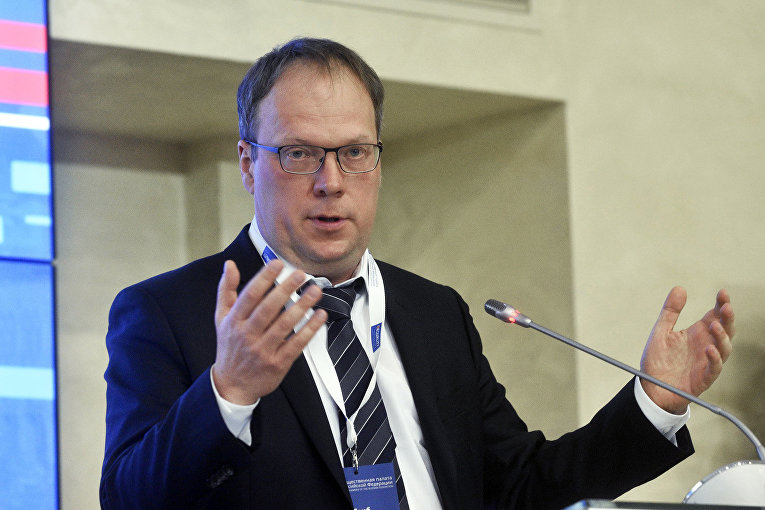MOSCOW, June 23 (RAPSI) — Vladislav Grib, Deputy President of the Russian Civic Chamber, has proposed to use new technologies, including artificial intelligence, for provision of free legal assistance to low-income citizens.
The task today is to start discussions involving the authorities and NGOs, on the issue how new technologies, artificial intelligence may help in providing free legal aid. Stakeholders must do their best to move beyond the anachronisms of consultations and buildings, and establish a single center coordinating the provision of legal aid online, Grib said addressing the participants of roundtable on the role of artificial intelligence and digital tools in providing free legal aid to citizens.
The Civic Chamber member compared the existence of the current system of state bureau to the use of "cavalry in the 21st century." In addition, he noted that the creation of a digital platform would allow the introduction of uniform standards for the provision of free legal aid.
Each consultant provides assistance based on his or her level of knowledge, legal training, practice. And, of course, there must be a single standard. There is a task set by the president for the digitalization of public services, Grib stressed. He believed that there was no other way judging from the point of view of sanitary and epidemiological safety, from the point of view of saving money on renting premises, housing and communal services, heating, as well as from the point of view of accessibility.
According to the Civic Chamber member, there are about 30-50 typical legal issues, in resolving which poor citizens usually seek aid.
Grib also noted the leading role of the Ministry of Justice as to the creation of a digital platform for the provision of free legal aid.
Probably, there is only one body that is capable of the realization of all the above and that is the Ministry of Justice of the Russian Federation, which can be both a customer, and a developer, and a coordinator of this system, the speaker noted.
President of Russia’s Federal Chamber of Lawyers Yury Pilipenko agreed with Grib.
As he said, his personal conviction was that digitalization of free legal aid could render it to be more effective, and only the Ministry of Justice could become the center and the main actor in the implementation of this project. Exactly this body should be financed from the federal budget in order to implement this program and act as the customer of this platform and organize all the other entities that will be involved in free legal assistance at some other stages.
The Chamber President also added that digitalization of the process of providing legal assistance to the population was to contribute to the development of Internet technologies in Russia.



